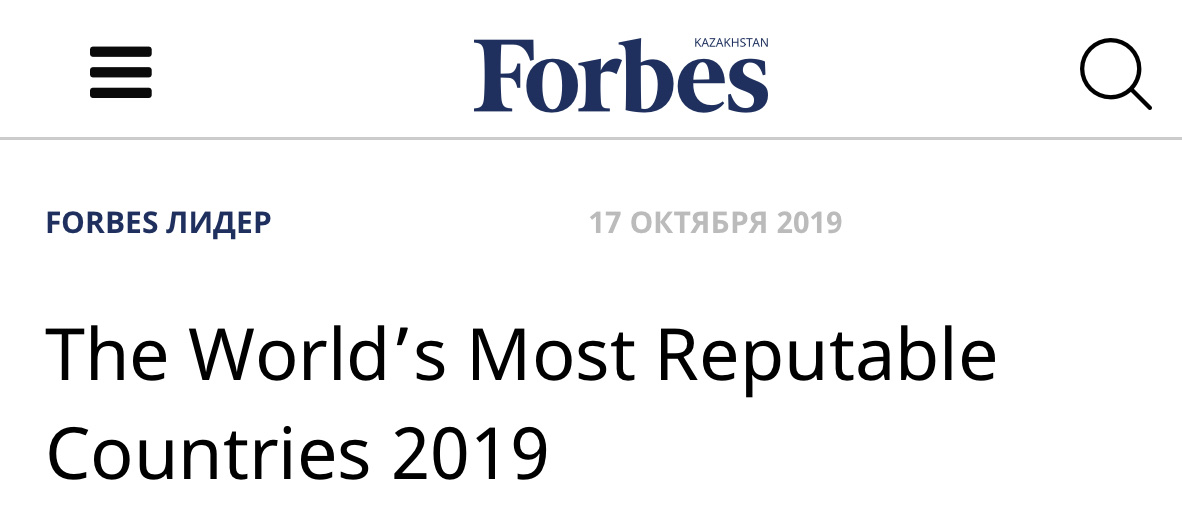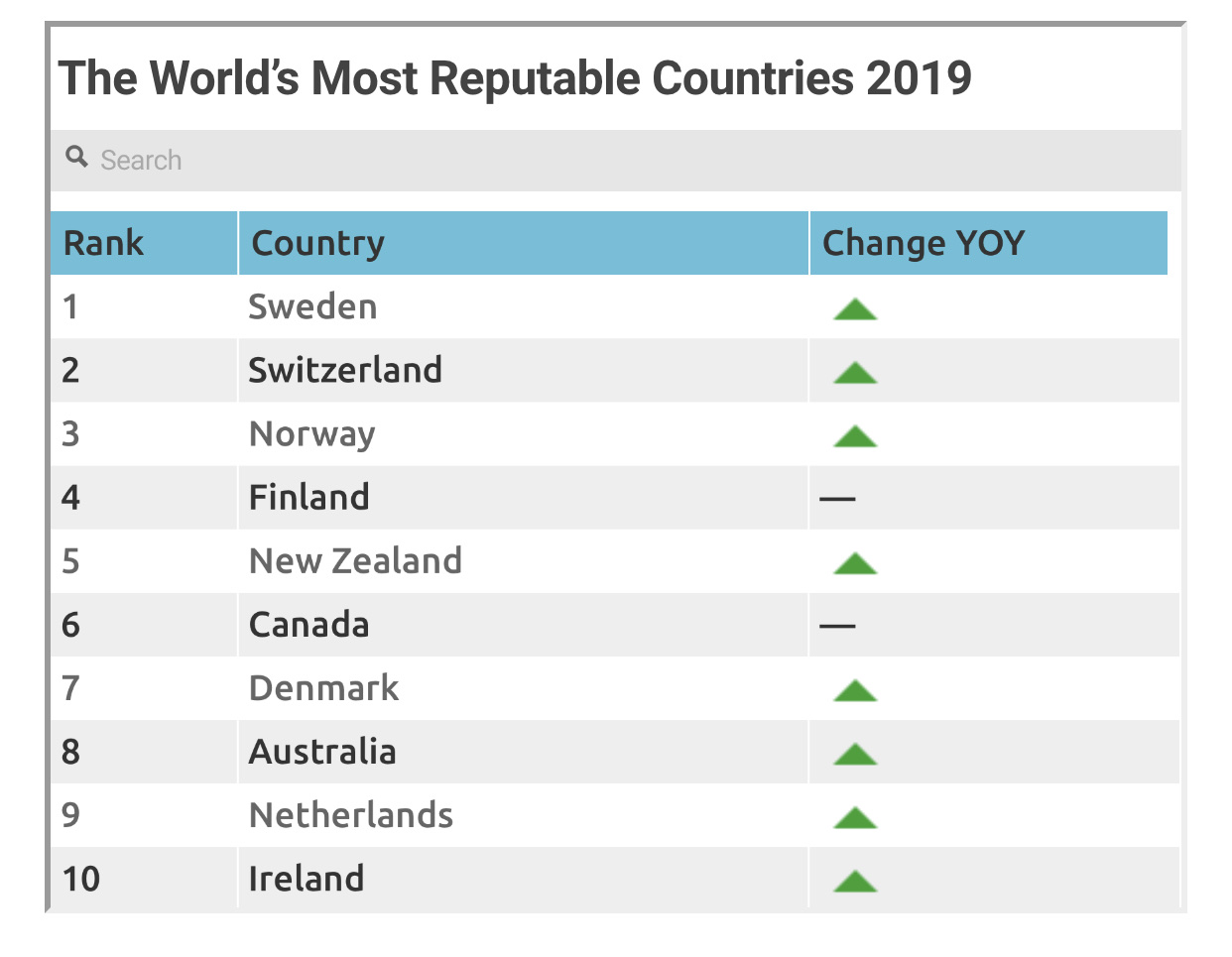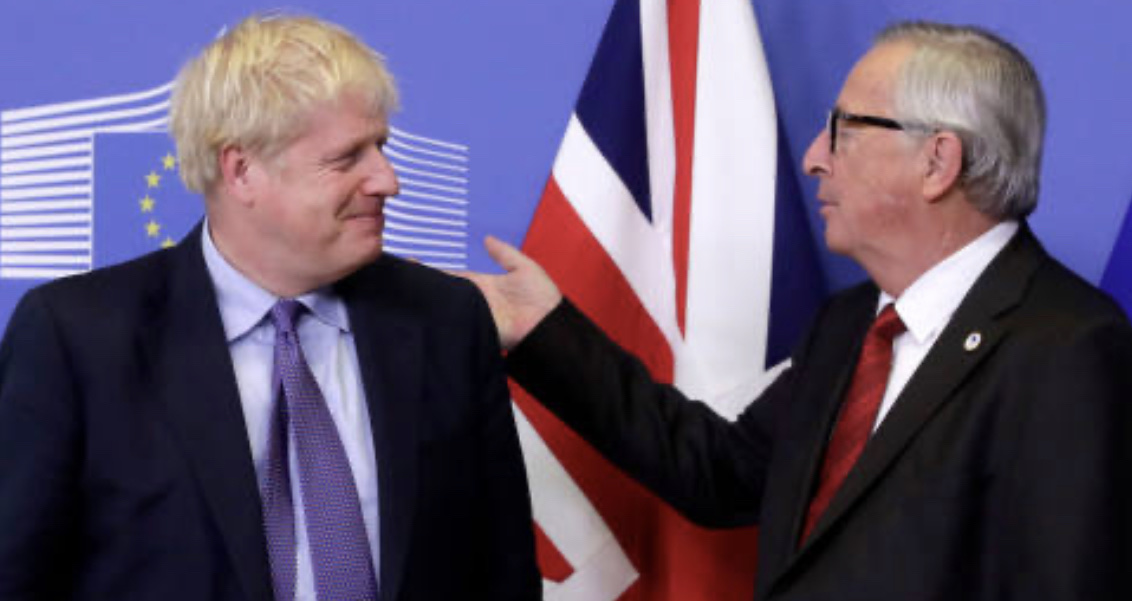If you were given the choice between a two-week vacation in New Zealand and one in Iran, which would you choose?

If your choice is the former, there’s a good chance that you’re being influenced by your perception of each country’s reputation. But how does a country’s reputation get made? Events that make front-page news play a big role, as do economic and environmental conditions and so much else. Consciously or unconsciously, people rely on these reputations when deciding where to set up a business, where to live and where to travel on vacation.
“Reputation determines whether people support a country through their behaviors. Good reputation means more exports, more investments, more people coming to visit,” says Nicolas Georges Trad, chief operating officer at the Reputation Institute, a reputation measurement and management services firm. Since 2008, RI has published the Country RepTrak, an annual study of countries’ reputations, based on a survey of citizens of G8 nations.

When asked why those particular countries were selected for the survey, Stephen Hahn-Griffiths, chief reputation officer at RI, explained: “It provides a proxy for the opinion of the population of the world,” adding that the survey responses are “driven and weighted by the perceptions of the most important economies.” This year’s ranking revealed an average 0.5-point increase in the reputations of Country RepTrak nations, barely enough to compensate for the average 1-point decline recorded last year.
What should shock no one, however, is that Sweden has claimed the No. 1 spot and appears in that position for the second year in a row. “Even relative to 2018, we’ve seen a significant improvement, and in many ways, [Sweden] has strengthened its position,” Hahn-Griffiths says. “It’s no wonder Sweden is No. 1, because it’s done an incredible job of telling its story.” The narrative to which Hahn-Griffiths wasn’t created by happenstance. Similar to a business strategy, the narrative is a collection of fact sheets and guides called “Sharing Sweden” that were crafted by the Swedish Institute, a government agency whose aim is to shape perceptions of the country overseas. “Sharing Sweden” explores everything from what the nation is doing to improve accessibility for people living with disabilities to how to work or run a business in the country. “Sweden has done well communicating through one team, and that is super difficult to do,” Georges Trad says. “Many countries have challenges with messages being thrown out there.”
To see more about this news and the merhodology used, click here: The World’s Most Reputable Countries 2019
Source: Forbes
EU leaders want to minimise disruption and concentrate on other pressing issues.
 Forget the letters. The EU will almost certainly extend the Brexit deadline, even though UK prime minister Boris Johnson sent three contradictory missives to the bloc on Saturday evening, rather than simply asking for an extension, as required by the Benn Act.
Forget the letters. The EU will almost certainly extend the Brexit deadline, even though UK prime minister Boris Johnson sent three contradictory missives to the bloc on Saturday evening, rather than simply asking for an extension, as required by the Benn Act.
But the EU’s position on extension has shifted in a subtle but substantial way from six months ago. Back then at least some EU leaders sympathised, or even colluded with, the Remainers in the House of Commons. They had lost confidence in then-prime minister Theresa May after her repeated defeats. They had even lower expectations of Mr Johnson.
But the crucial difference this time is that he has managed to edge towards, and possibly beyond, the majority needed to pass his deal.
You can read the entire article here:
Brussels believes it is now time to move on with Brexit
Source: FT
LA Galaxy this mornkng won the first paly off game in MLS 2-1 away against Minnesota United.

Now Galaxy will play rivals Los Angeles FC in the quarterfinals (division semifinal) on Friday morning. What a game. LA Galaxy vs LAFC, Zlatan Ibrahimovic vs. Carlos Vela.






You must be logged in to post a comment.